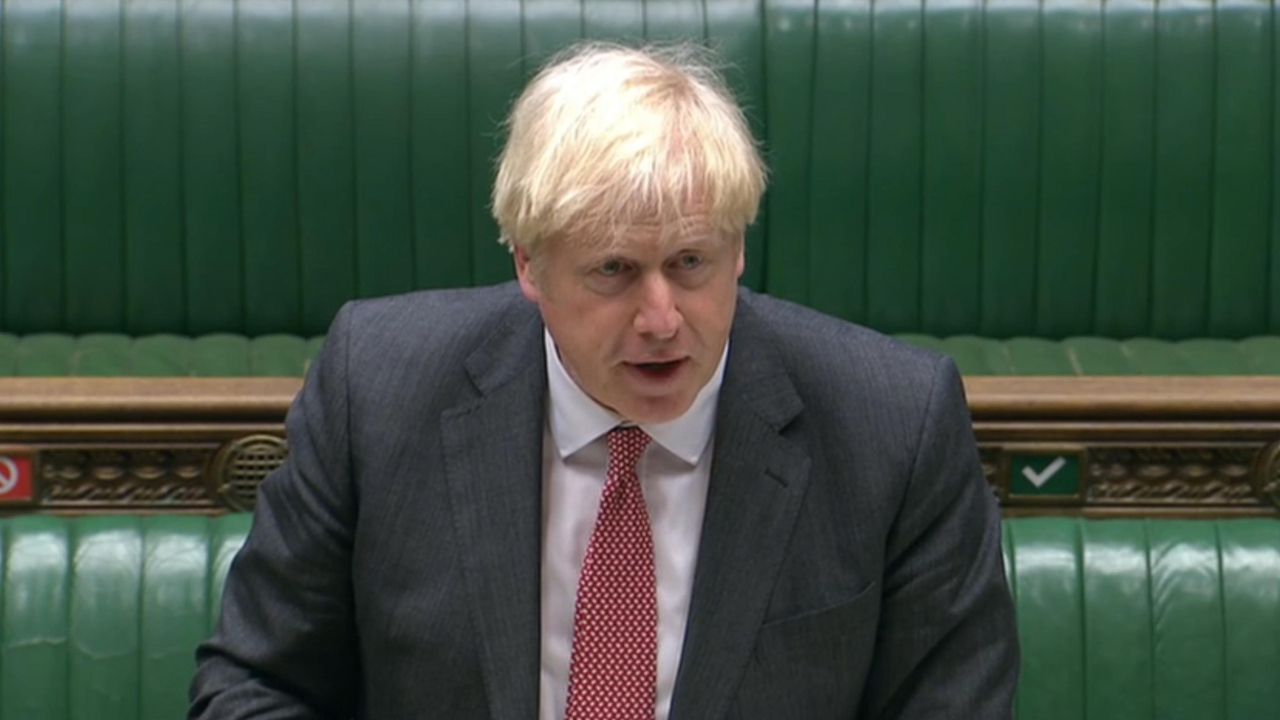
Boris Johnson's controversial Internal Markets Bill clears first hurdle in House of Commons
Former British prime ministers have all warned against the Internal Markets Bill proposed by Johnson.
by Press AssociationBORIS JOHNSON’S CONTROVERSIAL plan to override key elements of the Brexit deal he signed with Brussels has cleared its first Commons hurdle despite deep misgivings by some senior Tories.
MPs voted to give the UK Internal Market Bill a second reading by 340 to 263 – a Government majority of 77.
The Prime Minister said the legislation was necessary to prevent the EU taking an “extreme and unreasonable” interpretation of the provisions in the Withdrawal Agreement relating to Northern Ireland.
He said some in Brussels were now threatening to block UK agrifood exports to the EU and to insist on tariffs on all goods moving to Northern Ireland from the rest of the UK.
However some senior Conservatives warned they could not support the legislation in its present form after ministers admitted last week that it breached international law.
MPs will begin detailed line-by-line scrutiny of the Bill on Tuesday, with votes expected next week on amendments to the Northern Ireland provisions which some Tories may back.
Earlier this evening, Johnson claimed the EU hasn’t taken the “revolver”‘ off the table, hindering talks around a post-Brexit free-trade deal.
He made the comments as he introduced the controversial Internal Markets Bill in the House of Commons, which sets out the way that trade within the UK will work once outside the EU’s single market and customs union.
Johnson claimed that the EU was attempting to put up barriers between mainland Britain and Northern Ireland by blocking exports to Northern Ireland from the UK.
He insisted his proposed legislation, which would put the UK in breach of international law by breaking the terms of the treaty signed with Brussels, was a necessary “legal safety net” to protect the relationship between Great Britain and Northern Ireland.
“Absurd and self-defeating as that action would be, even as we debate this matter, the EU has not taken that particular revolver off the table and I hope that they will do so and we can reach a Canada-style free trade agreement as well,” he said.
The British Government has recognised that the bill will breach the terms of the agreement but is continuing efforts to introduce the legislation in spite of this.
“Last year we signed the Withdrawal Agreement in the belief, which I still hold, that the EU would be reasonable. Now after everything that has recently happened, we must consider the alternative. We ask for reasonableness, common sense, and balance, and we still hope to achieve that.
“We will always persevere no matter what the provocation,” he added.
“After all, what this Bill is simply seeking to do is the crucial thing, what we are simply seeking to do is to insure this country, to protect this country, against the EU’s proven willingness to use this delicately balanced protocol in ways that it was never intended.
“So this Bill includes our first step to protect our country against a contingency by creating a legal safety net, taking powers in reserve where prime ministers can guarantee the integrity of our United Kingdom.
“I understand how some people will feel unease over the use of these powers and I share that sentiment myself… I have absolutely no desire to use these measures. They are an insurance policy and if we reach agreement with our European friends, which I still believe is possible, they will never be invoked.”
The measures, contained in the Withdrawal Deal negotiated and championed by the Prime Minister last year, were designed to prevent a hard border on the island of Ireland by keeping Northern Ireland closely aligned with EU customs rules.
With reporting by Conor McCrave